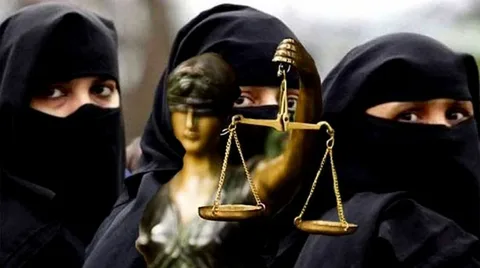In the UK, the presence of diverse cultures and religions has led to the coexistence of various legal and ethical frameworks, including Sharia Law. For Muslims living in the UK, understanding the nuances of Sharia Law is essential, especially when it comes to matters of family and personal life, such as divorce. This blog will explore the key aspects of Sharia Law in the UK, focusing on the process of obtaining an Islamic divorce, the role of the Sharia Council, and how to access reliable Islamic guidance and advice.
Understanding Sharia Law in the UK
Sharia Law represents a comprehensive set of ethical and legal principles derived from the Quran and Hadith, guiding Muslims in various aspects of life. While Sharia Law is not legally binding in the UK, it plays a significant role in the personal and family lives of many Muslims.
In the context of marriage and divorce, Sharia Law offers specific guidelines that differ from civil law. For instance, a Muslim marriage (Nikah) may not be recognized as a legal marriage under UK civil law unless registered. Similarly, an Islamic divorce granted by a Sharia Council may not be recognized in civil courts unless formalized through a civil divorce process. Understanding these distinctions is crucial for Muslims seeking to navigate their legal and religious obligations.
The Process of Islamic Divorce in the UK
1. Initiating the Islamic Divorce: Talaq and Khula
An Islamic divorce can be initiated by either spouse under Sharia Law. There are two primary types:
-
Talaq: This is a form of divorce initiated by the husband. It involves the husband pronouncing “Talaq” (I divorce you) three times, either in one sitting or over three separate occasions. In the UK, to ensure that the process adheres to both religious and legal requirements, many Muslim couples seek the involvement of a Sharia Council.
-
Khula: This is a form of divorce initiated by the wife, where she seeks a separation from her husband. In this case, the wife may be required to return her dowry (Mahr) as part of the divorce agreement. The process of Khula also typically involves the intervention of a Sharia Council to ensure fairness and adherence to Sharia Law.
2. The Role of the Sharia Council
The Sharia Council plays a pivotal role in the Islamic divorce process in the UK. These councils are composed of Islamic scholars who offer Islamic advice and rulings based on Sharia Law. When a couple seeks an Islamic divorce, they often turn to a Sharia Council to mediate and formalize the process.
The Sharia Council reviews the case, offers counseling, and ensures that both parties understand their rights and responsibilities. If the council determines that reconciliation is not possible, they will issue a divorce certificate, which is recognized within the Muslim community. However, it is important to note that this certificate may not have legal standing in UK civil courts, necessitating a separate civil divorce.
3. Legal Considerations: Sharia Law and Civil Law
While Sharia Law provides a framework for Islamic divorce, it is essential for Muslims in the UK to understand the intersection between religious and civil law. An Islamic divorce granted by a Sharia Council does not dissolve a marriage under UK civil law. Therefore, couples must also obtain a civil divorce through the UK legal system to ensure that their divorce is recognized legally.
Accessing Reliable Islamic Guidance and Advice
1. The Importance of Islamic Scholars and Counselors
Seeking advice from qualified Islamic scholars and counselors is crucial for Muslims navigating the complexities of Sharia Law and Islamic divorce in the UK. These scholars possess in-depth knowledge of Sharia Law and can offer personalized Islamic guidance that aligns with both religious and legal considerations.
Islamic scholars can provide valuable insights on various matters, including the rights and responsibilities of spouses, the process of divorce, and the implications of religious rulings in the context of UK law. Additionally, they can offer Islamic advice on maintaining family harmony and exploring avenues for reconciliation before resorting to divorce.
2. Finding a Trusted Sharia Council in London and Beyond
For Muslims seeking an Islamic divorce or other Islamic guidance, choosing a reputable Sharia Council is essential. In London and other parts of the UK, there are several Sharia Councils that offer services ranging from marriage and divorce to Islamic advice on various personal and family matters.
When selecting a Sharia Council, it is important to consider factors such as the council’s reputation, the qualifications of its Islamic scholars, and the range of services offered. A trusted Sharia Council can provide comprehensive support throughout the Islamic divorce process, ensuring that the rights of both parties are respected and upheld.
Navigating the Challenges of Sharia Law Divorce
1. Balancing Religious and Legal Obligations
One of the key challenges for Muslims in the UK is balancing religious and legal obligations when seeking a divorce. While an Islamic divorce granted by a Sharia Council fulfills religious requirements, it may not be sufficient to meet legal obligations under UK law. Therefore, it is essential for individuals to pursue both an Islamic divorce and a civil divorce to ensure that their separation is recognized by both their religious community and the legal system.
2. Addressing Common Misconceptions
There are several misconceptions surrounding Sharia Law and Islamic divorce in the UK. One common misconception is that Sharia Law overrides civil law, which is not the case. While Sharia Law provides guidance on personal and family matters, civil law governs legal recognition of marriage and divorce in the UK. Addressing these misconceptions is important for promoting understanding and ensuring that Muslims are fully informed about their rights and responsibilities.
Conclusion:
For Muslims in the UK, navigating the process of Islamic divorce can be complex, involving both religious and legal considerations. By understanding the role of Sharia Law, accessing reliable Islamic guidance, and working with reputable Sharia Councils, individuals can ensure that their divorce is handled with fairness and respect.
As the Muslim community in the UK continues to grow, it is increasingly important to provide clear, accurate information about Sharia Law and the Islamic divorce process. Whether you are seeking an Islamic divorce, looking for Islamic advice, or simply wanting to understand more about Sharia Law in the UK, this guide offers valuable insights to help you make informed decisions.




